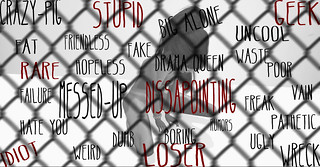The day was very relaxed. We only had from 8:30 to 10:15, so there was little point in starting anything new. Instead we took the time to reflect. Our teachers shared one thing they felt was the most meaningful, one thing that was the most frustrating and one thing they wish for. They were lovely and concise and touching. I have been honoured to work with them. Despite the real situations of limited access, they are determined to learn these skills every year. One lovely lady shared how initially she intended to only come every second day, so she could have her break as well, but instead came faithfully each day once she knew what she could learn. Although she expressed happiness that the course is now over and she can begin sleeping in, she is also sad that our time is up. I know exactly what she means! It has been another rewarding experience.

Presentations were made at the Grammar School, and they ran a little long as usual. It is hard to take that last step out the door. The participating teachers received certificates and then presented us with thank you gifts.

As an added bonus, the teachers Darlene and I worked with wrote a poem and presented it to us. They are so creative and appreciative. Here it is for you to enjoy:
When it came time to decide,
it was to Moodle and Make Changes!
Thanks to Shelly and Darlene our bellies are full and our b ... brain is glad!
Ensconced in our small but adequate room,
Ideas were exchanged as we all became 'tutors' in our own way.
Lending our expertise where needed.
Guided and supervised by tutors who allowed a
go-at-your-pace
and
share-if-you-will ideal.
The more we learned the greater the need to keep up;
And that's where symbaloo my dear you came in.
We dare to dream that someday soon our symbaloo will resemble our dear Moodleista's!
On the other end of the way
you heard the excitement in the voices as they grew.
Making changes seemed to be encouraging just that .....
change and discovery!
At times I think we future moodleistas wanted to know what was so exciting.
Times of silence would pass by and then you knew-----the focus was on especially during lesson
planning.
Often times the room was a buzz as each one would sing out,
"Shelly or Miss Shelly'.
And of course...she would magically appear!
A world of teacher tools was opened to us
there in that oh short course!
Tagxedo, Edmodo, Superteachertools...
If you want to know them all just sync with us on symbaloo.
Darlene and Shelly how awesome you are,
thoughtful to give your time and effort,
generous and charitable for all the tokens....
our sweet tooth sated and our purses absolved some valuable teaching aids.
Blessed for being patient and understanding for allowing us to teach each other and even you.
Your efforts may just have rekindled a fire that died
Or
Set ablaze one that's slowly dying.....
THANKS.
These are great people, who despite several limitations in internet reliability and computer access are ready to make great leaps in educating their youth when the conditions come up to meet their abilities. Darlene sagely noted that in Alberta, there is plentiful technology and access and too many teachers unprepared or unwilling to use it. Maybe in time the conditions of Dominica and Alberta will get to the point where student learning is optimized.
We have a dream.















